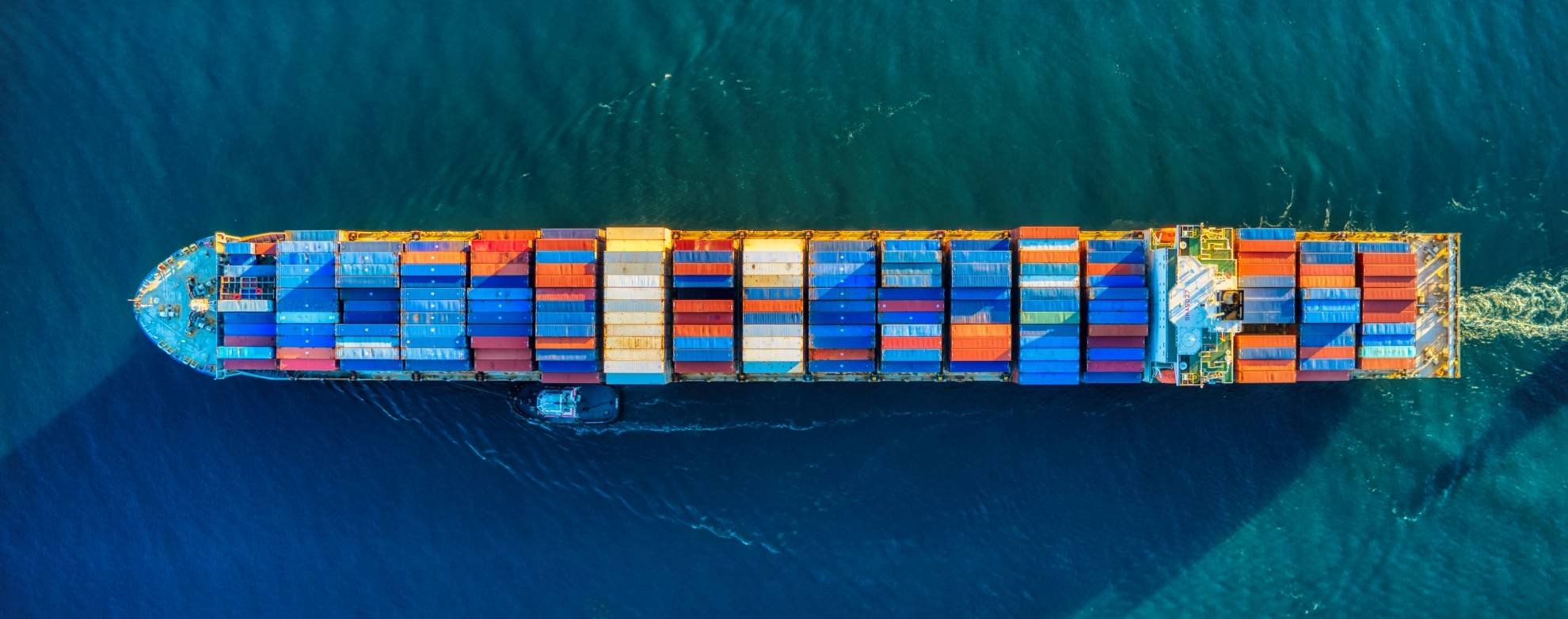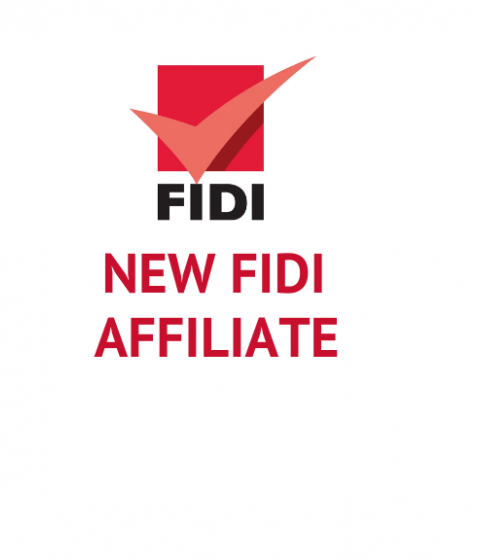Joint Statement from FIDI, IAM, PAIMA, LACMA: "A Call For A Balanced and Fair Maritime Market System"

A Call For A Balanced and Fair Maritime Market System
As the global voices for the moving, relocation and forwarding industry the FIDI Global Alliance (FIDI), the International Association of Movers (IAM), the Pan American International Movers Association (PAIMA) and the Latin American and Caribbean International Movers Association (LACMA) are joining forces to support the recent call from the International Federation of Freight Forwarders Associations (FIATA) for a more balanced and fair maritime market system.
The global moving and mobility industry relies heavily on international shipping to provide a seamless service to their customers. This service has been severely affected by volatile ocean freight conditions associated with the COVID-19 Pandemic. Since the onset of the Pandemic in the first quarter of 2020, FIDI, IAM, PAIMA and LACMA members have been at the mercy of shipping disruptions like worldwide port congestion, blanked and rolled sailings, containership accidents, etc. With COVID also causing unprecedented global demand for ocean freight services across all sectors, our members have had to contend with skyrocketing price rises along with the significant delays from these supply chain disruptions – each inevitably affecting our customers.
FIDI, IAM, PAIMA and LACMA strongly support FIATA call for actions as published in FIATA Discussion Paper on 30 June 2022.
Background
FIATA, as the International Federation of Freight Forwarders Associations, calls on industry stakeholders and market regulators to take action to ensure a balanced and fair-trading system.
As outlined by FIATA in its discussion paper, “the maritime supply chain continues to experience record disruptions and unpredictability. Freight forwarders play a key role in the effective movement of goods and ensure access to the global logistics supply chain for shippers in all economies. This access to the global logistics chain is under threat today. Moves by the world’s largest shipping lines, which as part of the three global shipping alliances dominate 80 percent of the global shipping market and 95 percent of critical East-West trade lanes, have sought to cut or restrict freight forwarders from their services.”
These major shipping lines are now abusing their dominant position in the market and exploiting the regulatory anti-trust exemptions beyond their stated purpose to distort free market competition to the detriment of the end customer.
FIATA further asserts that “There is a need for a review of regulatory measures supporting shipping lines to ensure that they are fit for purpose and do not hinder level fair market competition, as well as to ensure attention is not diverted away from the industry’s key priorities.”
The discussion paper outlines the key policies FIATA believes should be under consideration to ensure a more balance maritime market system.
Policy Actions Called for by FIATA
- Investments directed towards decarbonisation rather than vertical integration
The International Maritime Organisation (IMO) aims to reduce the shipping industry’s greenhouse gas emissions by at least 50% by 2050, and to reduce the carbon intensity of missions by 40% by 2030 and 70% by 2050. To achieve this goal, the total cost has been estimated at over USD 1.5 trillion by 2050, with 87% of this needed for land-based infrastructure and facilities for low-carbon fuels. Meeting this cost and the decarbonisation goal by 2050 is expected to be a significant challenge.
Meanwhile, container shipping lines have made record-breaking profits in the past couple of years, with Drewry predicting 2022 pre-tax profits of as high as USD 300 billion. These profits have been generated within a protected environment of regulatory and tax exemptions, and are being directed towards mergers and acquisitions outside of their port-to-port activities to dominate the entire door-to-door logistics chain, resulting in unprecedented market concentration.
A more valuable use of these high profits would be to invest in decarbonisation efforts so that the industry can be on track for the IMO goals, and to ensure that the financial burden is not left to other parts of today’s ailing economy.
FIATA therefore calls on the IMO, governments and relevant organisations to put in place a plan for decarbonisation that takes account of this context and encourages such investments by shipping lines.
- Measures supporting the shipping industry that are fit for purpose in the new economic environment
The regulatory antitrust exemptions and vessel sharing agreements in support of shipping lines were granted for the important purposes of promoting efficiency and optimisation of the maritime supply chain. Nevertheless, there is a need to now rethink these measures to ensure they remain fit for their intended purpose.
The broad antitrust exemptions granted to shipping lines under the regulatory environment allow for the possibility to use such exemptions in areas outside of the port-to-port activities for which these exemptions were designed. In addition, they open the door for shipping lines to also use such exemptions in other activities – such as cargo handling, logistics and ancillary services – thus competing unfairly with the players active in those activities who do not have the benefit of exemptions from antitrust law. This creates an oligopolistic market which undermines the overarching intent of the antitrust exemptions and antitrust law overall.
FIATA calls for a review of antitrust regulatory exemptions and considers that a more appropriate regulatory response would be to grant permissions to shipping lines, rather than exemptions, to deviate from antitrust law in certain prescribed situations. This would retain the regulatory intent, whilst allowing for certain criteria to be developed for such benefits to ensure they are not misused.
- Incentivising carbon offsets
Maritime transport is responsible for about 2.5% of global greenhouse gas emissions. Finding solutions for decarbonisation is necessary, and carbon offsets will play an important role in this strategy as an intermediary step towards a zero-emission shipping industry. This will bridge the gap through an economic variable approach as the industry seeks to eliminate its dependence on fossil fuels.
FIATA calls for more work to be done to understand how to make carbon offset markets more efficient, and how they can be used as a real incentive for shipping lines to decarbonise and invest in decarbonisation. It is crucial that the cost of decarbonisation is not simply passed to the customer, but that it is part of a concerted investment effort by the maritime industry.
- Development of a data charter for the logistics and transport industry
Industry digitalisation efforts are crucial for greater optimisation and efficiency in the supply chain.
Today, there are many different initiatives taking place across the industry for the development of digital solutions. At the same time, it is important to ensure that this is effectively organised in a manner that does not inadvertently result in a data monopoly by certain actors holding the data, who can then utilise such data to compete unfairly with other actors in the supply chain. This is also important for ensuring that all actors across global supply chains will continue to have access to trade logistics and do not risk being cut out of the system due to lack of resources or connectivity.
FIATA continues to promote decentralised systems which do not privilege one single standard or type of system, but that instead are interoperable with each other. FIATA also calls for the development of a data charter for the logistics and transport industry that, in a similar manner to data protection regulation, allows for the possibility to protect confidential and commercially-sensitive information during industry data exchange.
- Establishment of a formalised and consistent platform for global collaboration between all supply chain actors
Collaboration and dialogue between all supply chain actors on a global level is crucial to understanding the issues at stake to facilitate a coordinated approach to finding and implementing solutions.
Currently, there is no one platform where dialogue and collaboration can be conducted on a consistent and formalised basis. However, bottlenecks and disruptions in the supply chain are dependent on and affect matters that touch many different stakeholders in the supply chain.
In addition, the global nature of the maritime supply chains requires that such discussions take place on a global scale, with representation from all world regions. Over the past couple of years, FIATA has sought to initiate dialogue amongst all industry stakeholders at the governmental and private sector levels, which was highly welcomed, and which facilitated constructive discussions.
FIATA considers that such discussions should be formalised and consistent on a global level to find solutions and inform policy making. Such platforms for collaboration could take place under the auspices of a relevant global organisation, such as the International Maritime Organisation (IMO).



